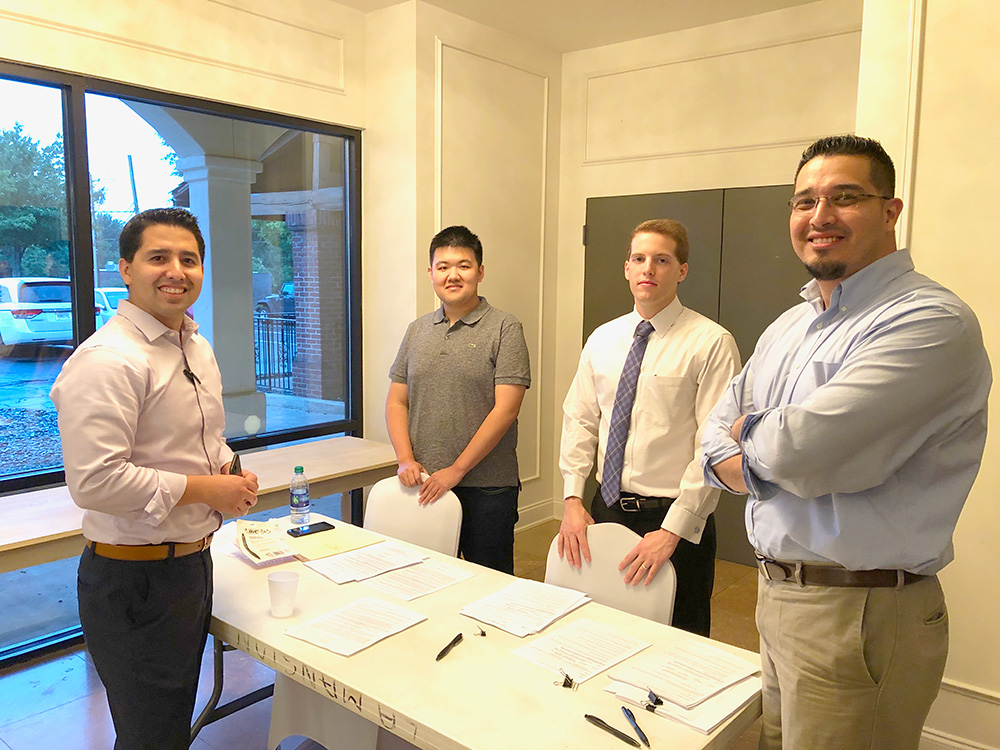
Pro bono service is more than a requirement of many state bars: it's a foundational underpinning of the legal profession. As you use your skills to help people in need, you gain the satisfaction of knowing you've contributed meaningful, quantifiable service to society at large. Law students engaged in pro bono work have the opportunity to learn and hone skills in a real-world setting and to make connections throughout the Atlanta legal community, while helping those in need and contributing to their communities.
Pro bono service is more than a requirement of many state bars: it's a foundational underpinning of the legal profession. As you use your skills to help people in need, you gain the satisfaction of knowing you've contributed meaningful, quantifiable service to society at large. Law students engaged in pro bono work have the opportunity to learn and hone skills in a real-world setting and to make connections throughout the Atlanta legal community, while helping those in need and contributing to their communities.
Emory Law students have abundant pro bono opportunities both at Emory and beyond. Students can engage in pro bono work on campus through organizations including the Barton Child Law and Policy Center, Emory Law School Supreme Court Advocacy Program, Emory Immigrant Legal Assistance, and the International Refugee Assistance Project.
Beyond campus, Emory Law’s location in the heart of metropolitan Atlanta offers students opportunities to engage in meaningful pro bono work with a wide array of organizations across all fields of law. In 2023-24, Emory Law students volunteered pro bono with over 25 organizations throughout Atlanta, including:
- The ACLU of Georgia
- Atlanta Legal Aid
- Atlanta Volunteer Lawyer’s Foundation
- Centers for Disease Control and Prevention
- DeKalb County Public Defender’s Office
- Federal Defender’s Office
- Fulton County District Attorney’s Office
- Georgia Advocacy Office
- Georgia Appleseed
- Georgia Asylum and Immigration Network (GAIN)
- Georgia Innocence Project
- Georgia Justice Project
- Georgia Legal Services Program
- Southern Center for Human Rights
- Truancy Intervention Project
- S. Attorney’s Office, Northern District of Georgia
Pro Bono Opportunities
Emory Law encourages all students, regardless of their professional goals, to engage in meaningful pro bono work at some point during their law school careers. The organizations listed above, among others, regularly offer pro bono opportunities for students.
Emory Law’s Center for Public Service maintains a list of available pro bono opportunities, ranging from recurring volunteer shifts, to one-day clinics, to research and file-review opportunities students can complete on their own time. Click here to view a current list of available student pro bono opportunities.
Beyond these opportunities, Emory encourages students to contact their preferred legal services organizations directly to volunteer.
Pro Bono Certificates and Medals
Emory Law students engaged in pro bono work have the opportunity to earn an annual Pro Bono Certificate as well as a Pro Bono Publico medal to be worn at commencement.
To earn these awards, students must log:
- 25 hours per year to earn the Pro Bono Certificate
- 75 hours total in law school (JD/AJD) or 50 hours total (LLM) to earn the Pro Bono Medal.
To count towards these awards, pro bono service hours must meet the following requirements:
- unpaid, law-related work,
- performed during the school year (between the first day of Fall classes and the day before Graduation),
- supervised by a judge or attorney, that
- assists in the provision of legal services without charge
- for persons of limited means, or
- for not-for-profit, nonpartisan (501(c)(3)) organizations or governmental organizations, or
- for other individuals, groups or organizations seeking to secure or protect civil rights, civil liberties or public rights.
Click here for Emory Law’s complete 2025-26 Pro Bono Program Guide.